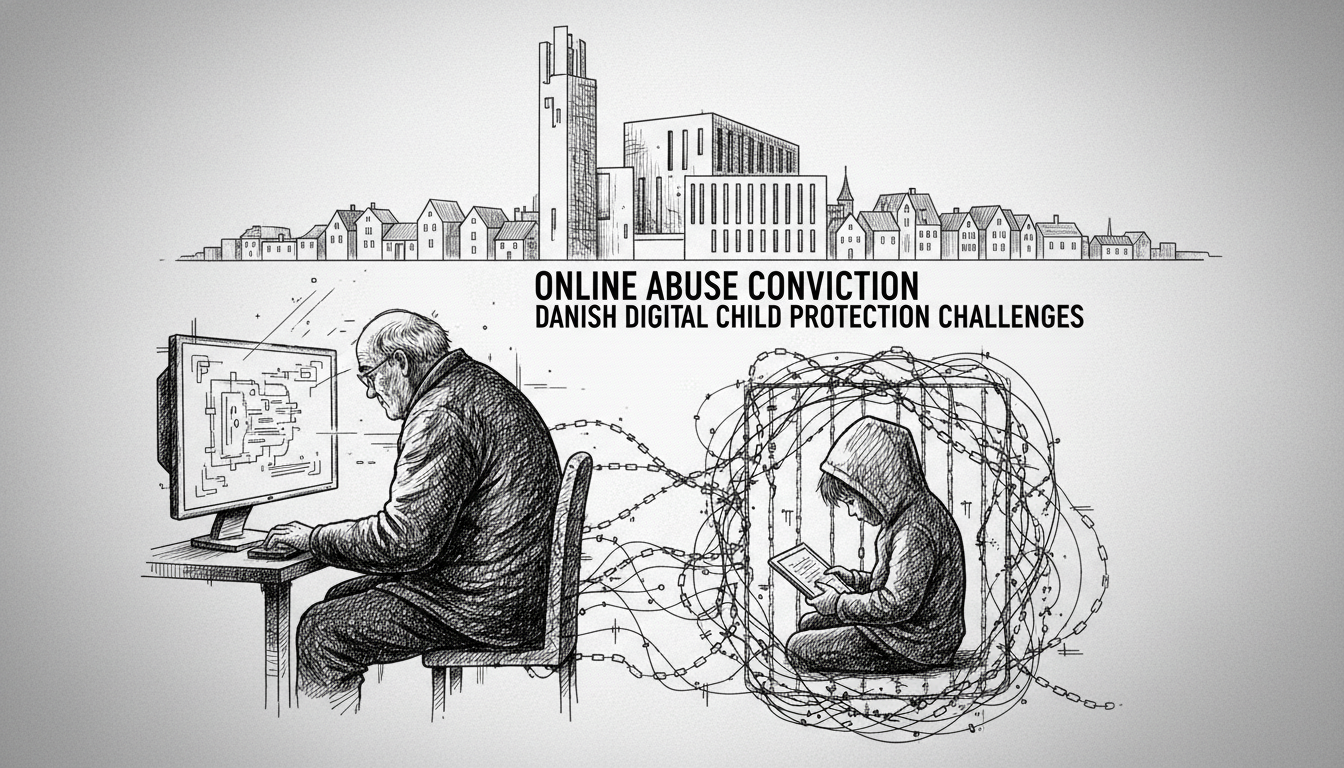A Danish court has delivered what prosecutors call an unambiguous message about unacceptable behavior. A 64-year-old man from Slagelse faces two years of unconditional imprisonment for serious crimes against children. His conviction includes charges of grooming, indecent exposure, and attempted stalking. Police in South Zealand and Lolland-Falster confirmed the details in their official statement about the case.
Among the victims was an eight-year-old boy targeted through online platforms. The man created fake social media profiles posing as a much younger person to establish contact. He systematically manipulated the affected boys and built relationships with them for exploitation purposes. Authorities arrested the suspect last August, and he has remained in custody since that time.
Special prosecutor Susanne Bluhm stated the court's decision sends a clear signal that such conduct remains completely unacceptable. The Næstved Court's ruling continues the defendant's confinement while he considers appealing to the Eastern High Court. Court documents reveal the man violated previous contact restrictions involving a teenage boy.
This case highlights ongoing challenges within Danish society regarding online child protection. Copenhagen integration efforts and broader Denmark social policy increasingly focus on digital safety. The Danish welfare system traditionally emphasizes child protection but faces new threats from evolving technology. Denmark immigration policy sometimes intersects with these cases when cultural differences in child rearing emerge.
Municipal social centers across Denmark work to prevent such crimes through education and community programs. Recent statistics show concerning patterns in online grooming cases despite increased awareness. Many Danish municipalities now allocate additional resources to digital safety education in schools. Community leaders emphasize the need for continued vigilance and parental involvement.
Legal experts note this case demonstrates the judicial system's firm stance on repeat offenders. The conviction reflects Denmark's commitment to protecting vulnerable children through both legal measures and social support systems. Police investigators stress the importance of reporting suspicious online behavior immediately. Such cases prompt ongoing evaluation of Denmark's approach to digital crime prevention and victim support.
The broader implications for Danish society involve balancing digital freedom with child protection. Social services coordinate with schools and families to identify at-risk situations. This case will likely influence future policy discussions about online regulation and child welfare interventions.

